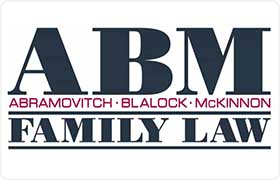Palatine Child Support Lawyer, Illinois, page 2
Sponsored Law Firm
-
 x
x

Click For More Info:
-
Abramovitch Blalock McKinnon, LLC
120 North LaSalle Street Suite 1030 Chicago, IL 60602» view mapDivorce & Family Law Guiding You Through The Toughest Times
When dealing with complex legal matters that involve your family, it’s crucial to seek counsel from a dedicated, dependable Chicago divorce lawyer.
800-609-2870
Rickey J. Ament
Dispute Resolution, Collaborative Law, Child Support, Adoption
Status: In Good Standing
Joel DeGrazia
Divorce & Family Law, Paternity, Collaborative Law, Child Support
Status: In Good Standing Licensed: 42 Years
FREE CONSULTATION
CONTACT Tina Abramovitch Chicago, IL
Tina Abramovitch Chicago, IL
